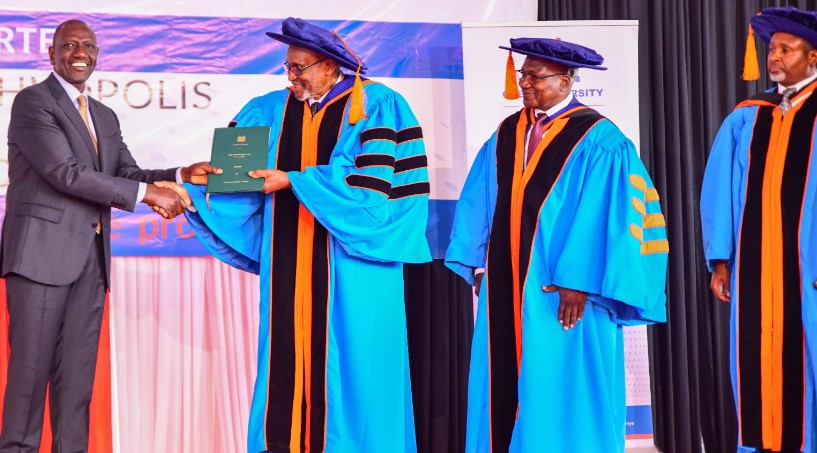The National Treasury has slashed the Ministry of Education budget, affecting the dreams of 153 292 students who are set to join universities in September.
The Higher Education Loans Board (HELB) and Universities Fund were slashed by Kes 31.1 billion and Kes 16.9 billion for years 2-6 in the 2024/2025 financial year.
Initially, they were allocated Kes 31.8 billion and Kes 19.5 billion in the financial year 2023/2024 for the funding year 1-6 student loans and scholarships.
Higher Education Principal Secretary Beatrice Inyang’ala told the National Assembly Committee on Education the revised budget estimates will hinder students learning in higher learning institutions.
“This leaves a total of 153, 292 year 1 students (KCSE 2023 candidates)) who were placed by Kenya Universities and Colleges Central Placement Services (KUCCPS) in universities inadequately funded.”
Did you read this?
Further, she revealed that the State Department of Higher Education is facing a shortfall of Kes 22.9 billion, with the HELB budget reduced to Kes 710 million from Kes 31.9 billion with the Universities Fund reduced by Sh2.6 billion from the initial Kes 19.6 billion.
“The students are due to report in their respective universities in September 2024. The resultant deficit for the Financial year 20204/2025 printed estimates is Kes 22, 897 million,” Inyang’ala said.
Apart from first-year students, the Higher Learning Principal Secretary lamented that continuing students in the universities will also be affected by budgetary cuts.
The Differentiated Unit Cost (DUC) funding for continuing students is only Kes 23 billion, representing 38.75 percent, while the optimal funding level is 80 percent.
“The state department is requesting a higher allocation of 50 percent of the DUC, which is Kes 29,024, 632,379 to enable universities to operate optimally. This indicates that there is a significant shortfall in the current funding allocation for DUC,” the PS said.
The same fate will befall government-sponsored students in private universities, as their budget has been reduced by Kes 1.8 billion from an initial Kes 2.3 billion to the current Kes 574.8 million.
Additionally, he revealed that the ripple effect will continue, and students from poor households will be forced to abandon their studies if they have no alternative funding source.
“With reduced funds, students may struggle to cover the increased costs of tuition fees, living expenses and other essential student services, making it impossible for them to sustain their academic pursuits,” PS Inyang’ala said.
Tinderet MP Julius Melly warned that the budget, which mostly affects the youthful generation, will now trigger nationwide demonstrations asking why the government was sabotaging itself.









